When it comes to employee performance reviews, crafting the right letter is essential for effective communication. A well-structured letter not only conveys feedback but also fosters personal growth and motivation. By highlighting achievements and areas for improvement, you create an opportunity for open dialogue that can lead to a more productive work environment. So, let's dive into the best practices for writing performance review letters that engage and inspire your team!

Introduction and positive remarks
During performance reviews, highlighting key achievements can foster a supportive work environment. Recognizing individual contributions plays a crucial role in employee morale and engagement. Celebrating milestones such as project completions, sales targets surpassed, or customer satisfaction ratings achieved demonstrates acknowledgment of hard work. Emphasizing personal development areas, like skills acquired or leadership qualities exhibited, can enhance employee motivation. Specific examples, such as a successful presentation at the annual company convention in New York or a significant improvement in team collaboration during a recent product launch, provide concrete validation, reinforcing a culture of appreciation and continuous improvement.
Summary of achievements and strengths
An employee's performance evaluation highlights essential accomplishments and notable strengths critical for professional growth. The individual, recognized for surpassing quarterly sales targets by over 20%, demonstrated extraordinary commitment to team objectives. Consistently presenting innovative solutions during team meetings, their ability to foster collaboration within the project team (comprising five members, including the project manager) enhances overall productivity significantly. In addition, excellent customer feedback underscores their effective communication skills, leading to a 30% increase in client retention rates over the past year. This employee excels in time management, consistently meeting deadlines for ten key projects throughout the year, while also mentoring new staff members, demonstrating leadership qualities essential for future advancement.
Areas for improvement and development
During employee performance reviews, identifying areas for improvement and development is crucial. For instance, communication skills are essential in a collaborative work environment, requiring employees to engage effectively during team meetings and presentations. Moreover, time management abilities can significantly impact project deadlines and overall productivity, with studies suggesting that employees who prioritize tasks (like using the Eisenhower Matrix) tend to meet deadlines more consistently. Additionally, technical skills, such as proficiency in software tools (like Microsoft Excel or Adobe Creative Suite), are important for enhancing an employee's efficiency and output quality. Investing in training programs or mentorship opportunities can provide employees with the necessary resources to cultivate these competencies, ultimately contributing to personal growth and the organization's success.
Goals and objectives for the future
Future goals and objectives for employees are essential for facilitating growth and development within an organization. Setting specific, measurable, achievable, relevant, and time-bound (SMART) goals can create a clear roadmap for career advancement. For instance, an employee might aim to complete a professional certification, such as Project Management Professional (PMP), by the end of Q4 2024, enhancing skills in project delivery and stakeholder management. Another objective may involve increasing sales performance by 20% over the next fiscal year, showcasing commitment to achieving company targets. Participation in leadership training programs can also be a goal, fostering essential management skills for potential promotions to managerial roles. Regular feedback sessions can ensure alignment with organizational objectives and monitor progress toward these goals.
Closing remarks and encouragement
In your performance review, reflecting on key accomplishments demonstrates growth and progression. Recognizing targets met, such as increased sales of 15% in Q2 at the New York branch, illustrates your positive impact on team dynamics. Acknowledging areas for development, like enhancing project management skills for timely delivery under budget constraints, shows commitment to personal improvement. As we look ahead to potential leadership opportunities, remember the importance of collaboration within teams, particularly during upcoming product launches in spring 2024. Your contributions are valued, and with continued effort and focus on these growth edges, success is attainable.

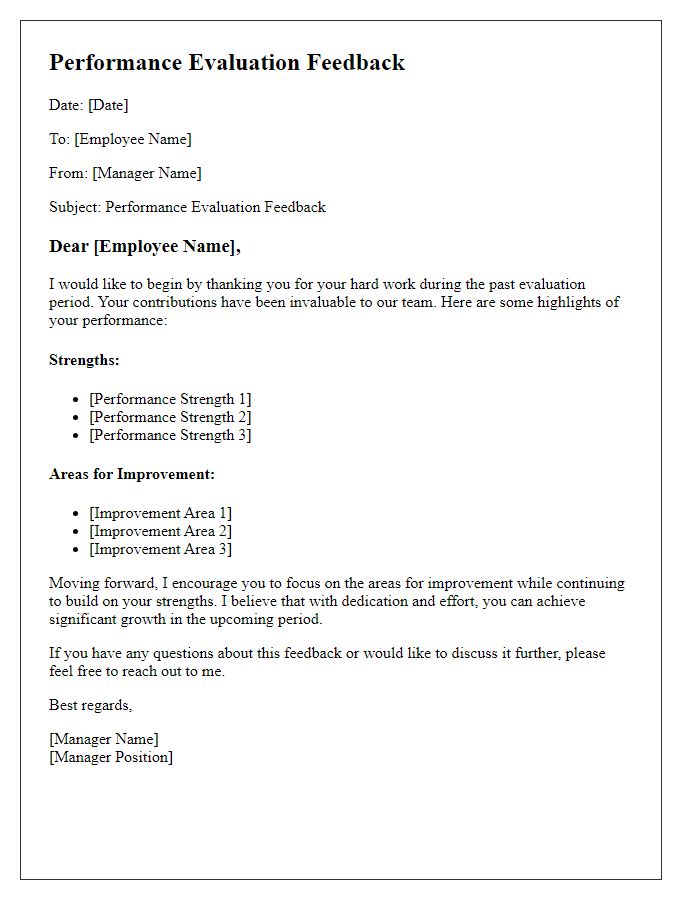
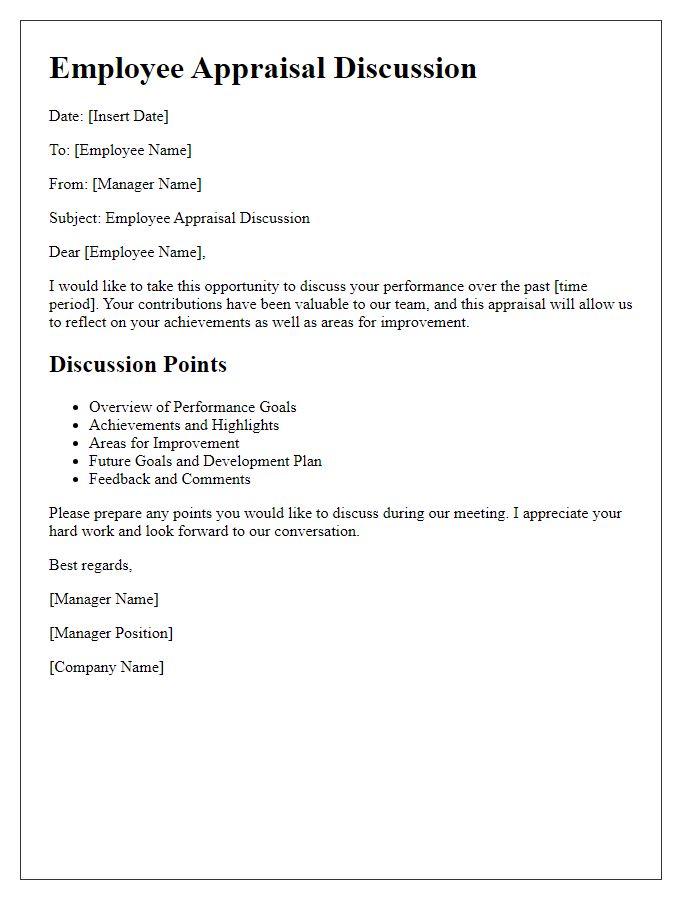
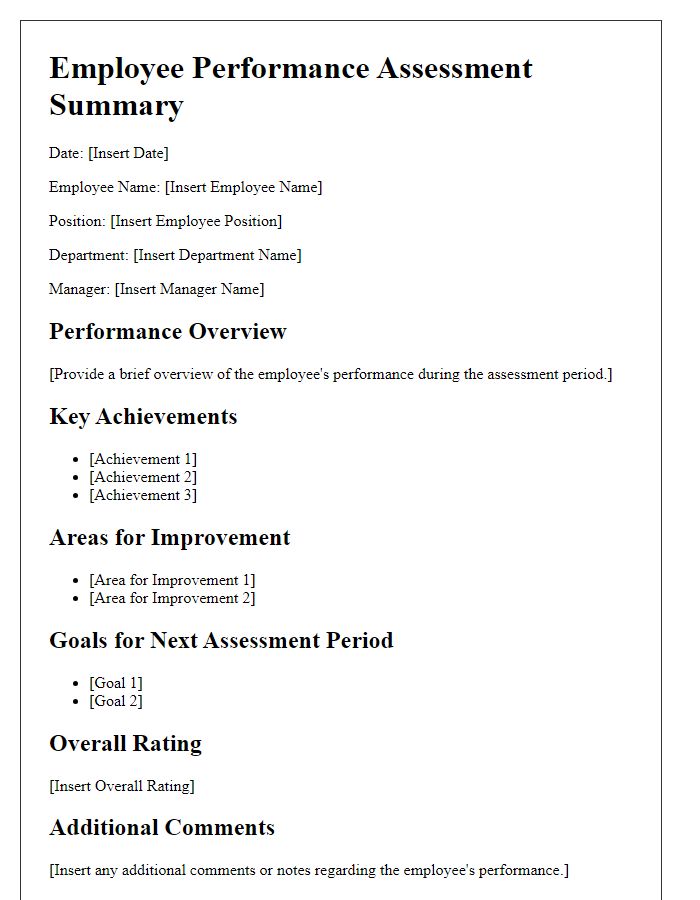
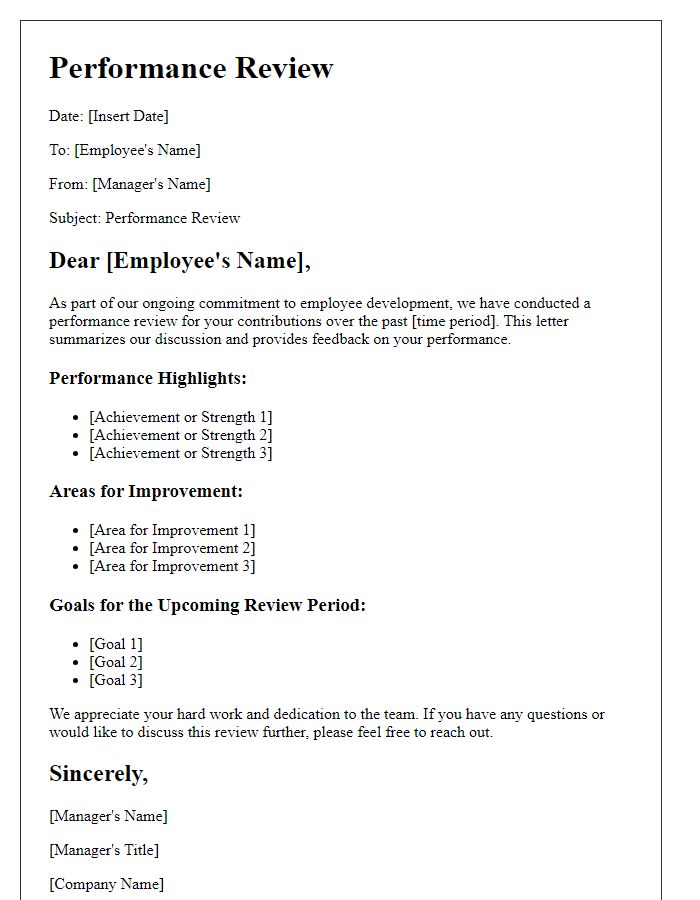
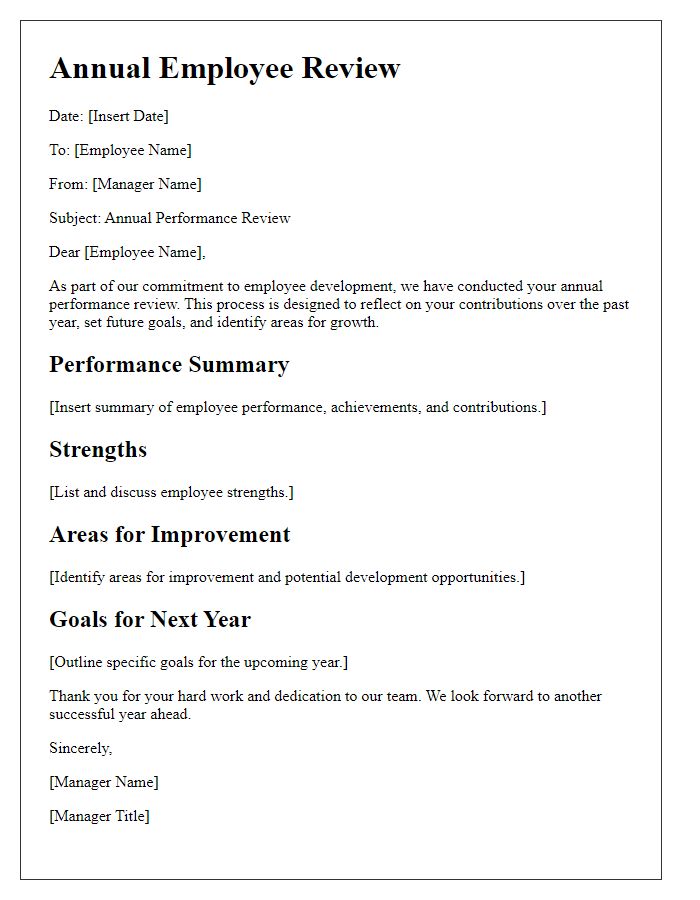
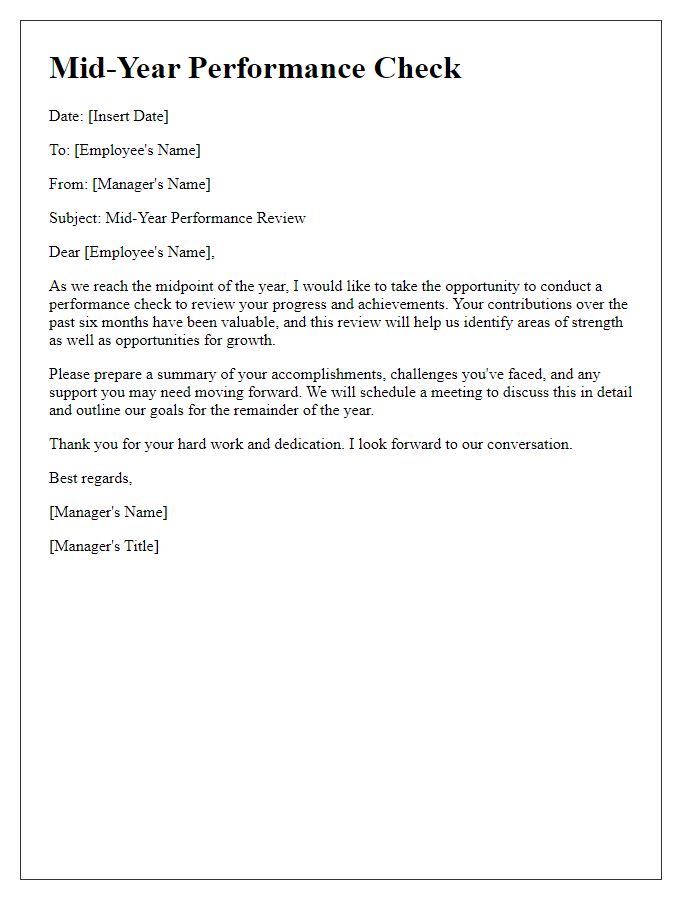
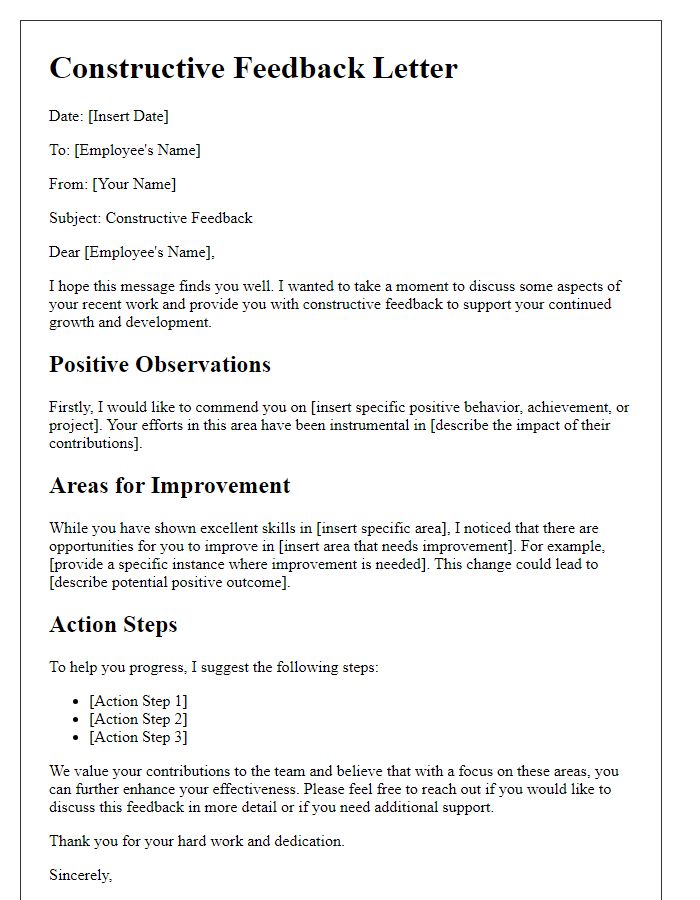
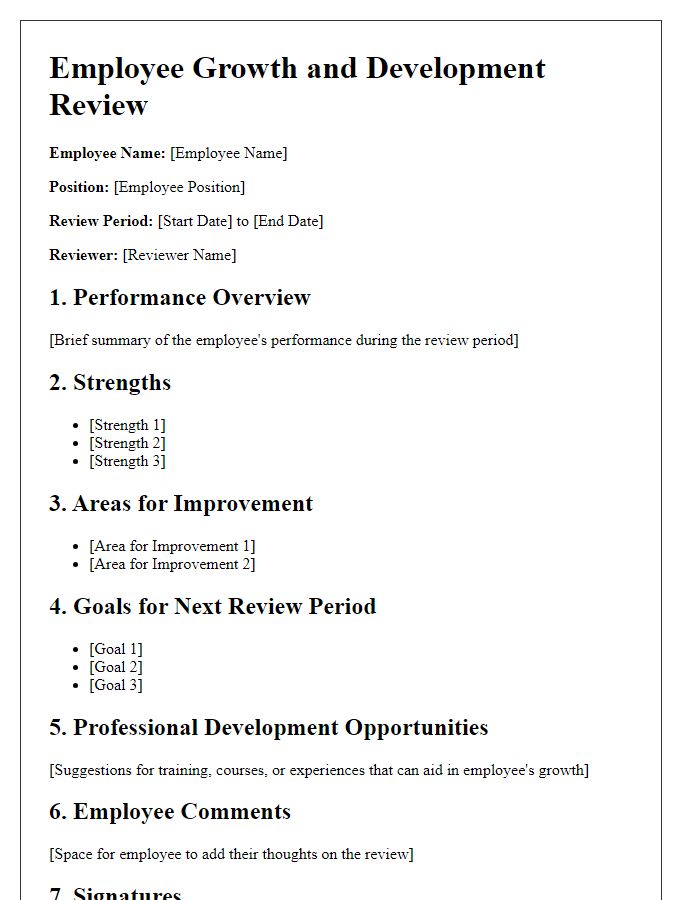
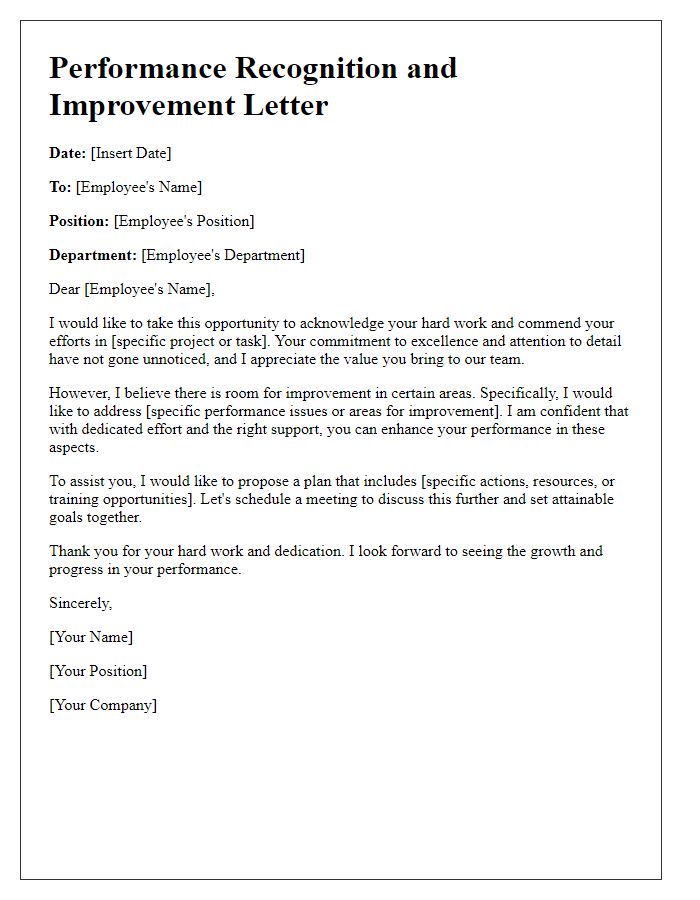
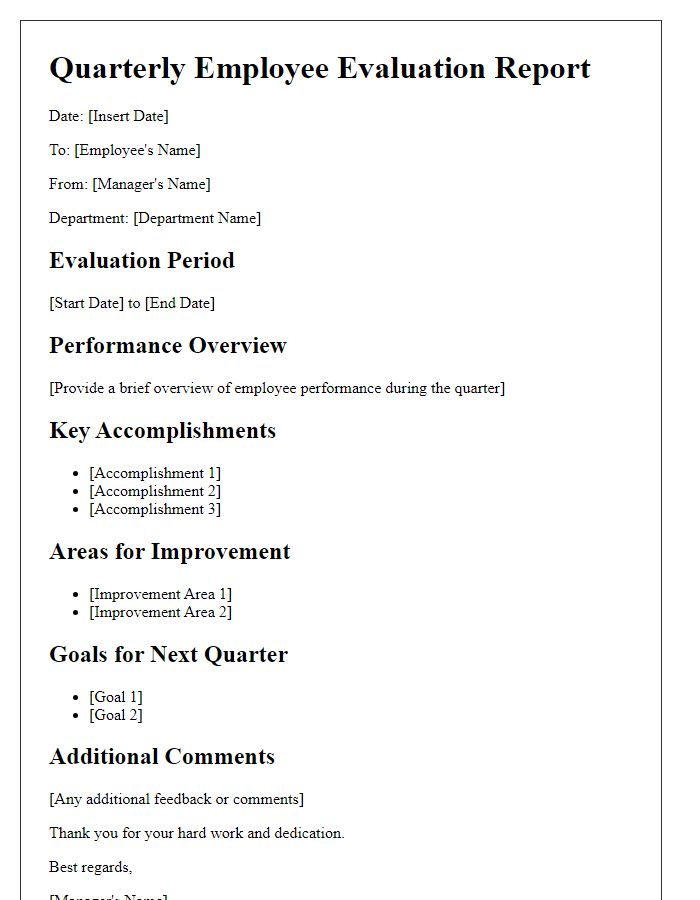


Comments